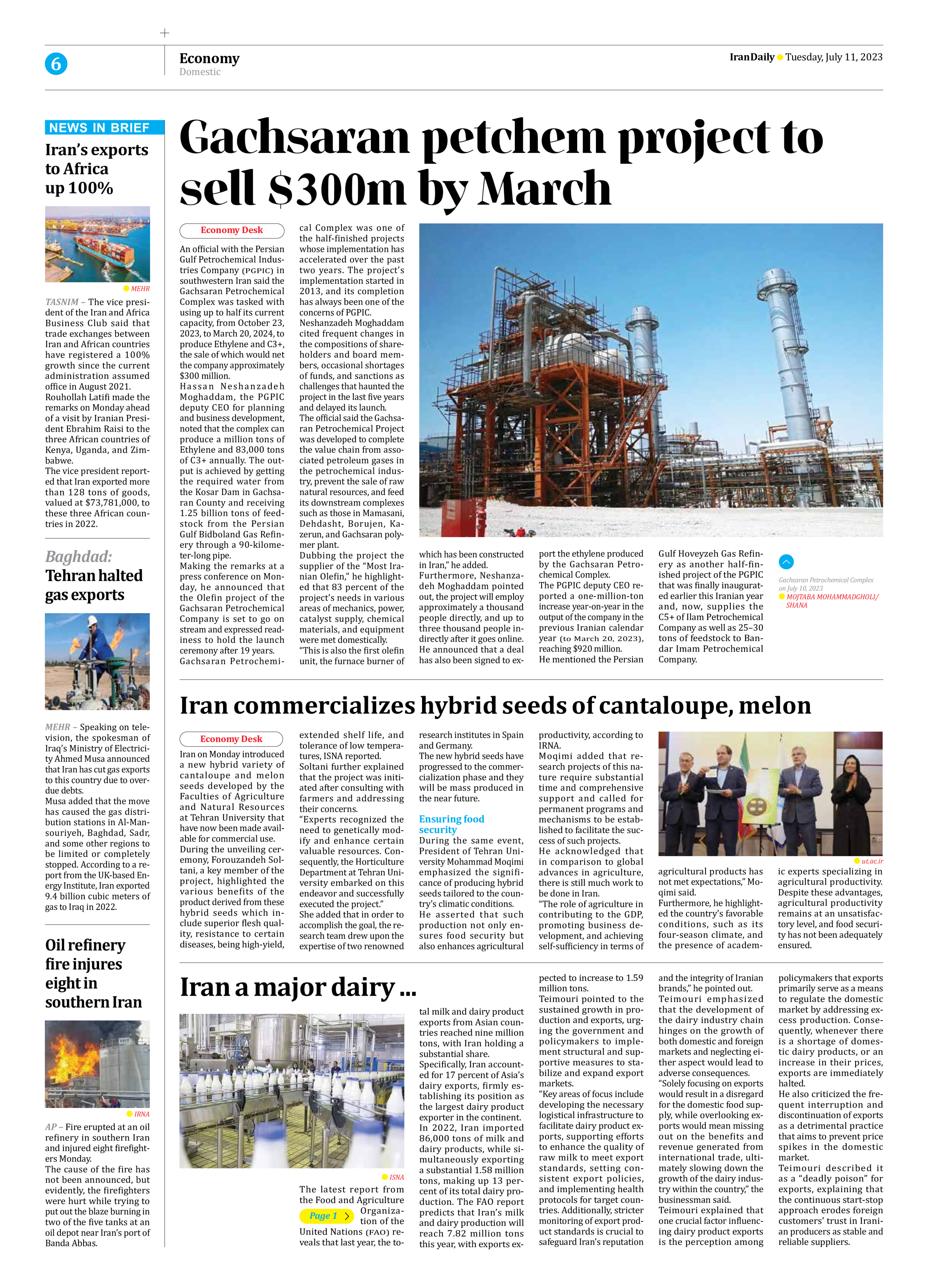
Iran a major dairy ...
Page 1
The latest report from the Food and Agriculture Organization of the United Nations (FAO) reveals that last year, the total milk and dairy product exports from Asian countries reached nine million tons, with Iran holding a substantial share.
Specifically, Iran accounted for 17 percent of Asia’s dairy exports, firmly establishing its position as the largest dairy product exporter in the continent.
In 2022, Iran imported 86,000 tons of milk and dairy products, while simultaneously exporting a substantial 1.58 million tons, making up 13 percent of its total dairy production. The FAO report predicts that Iran’s milk and dairy production will reach 7.82 million tons this year, with exports expected to increase to 1.59 million tons.
Teimouri pointed to the sustained growth in production and exports, urging the government and policymakers to implement structural and supportive measures to stabilize and expand export markets.
“Key areas of focus include developing the necessary logistical infrastructure to facilitate dairy product exports, supporting efforts to enhance the quality of raw milk to meet export standards, setting consistent export policies, and implementing health protocols for target countries. Additionally, stricter monitoring of export product standards is crucial to safeguard Iran’s reputation and the integrity of Iranian brands,” he pointed out.
Teimouri emphasized that the development of the dairy industry chain hinges on the growth of both domestic and foreign markets and neglecting either aspect would lead to adverse consequences.
“Solely focusing on exports would result in a disregard for the domestic food supply, while overlooking exports would mean missing out on the benefits and revenue generated from international trade, ultimately slowing down the growth of the dairy industry within the country,” the businessman said.
Teimouri explained that one crucial factor influencing dairy product exports is the perception among policymakers that exports primarily serve as a means to regulate the domestic market by addressing excess production. Consequently, whenever there is a shortage of domestic dairy products, or an increase in their prices, exports are immediately halted.
He also criticized the frequent interruption and discontinuation of exports as a detrimental practice that aims to prevent price spikes in the domestic market.
Teimouri described it as a “deadly poison” for exports, explaining that the continuous start-stop approach erodes foreign customers’ trust in Iranian producers as stable and reliable suppliers.







